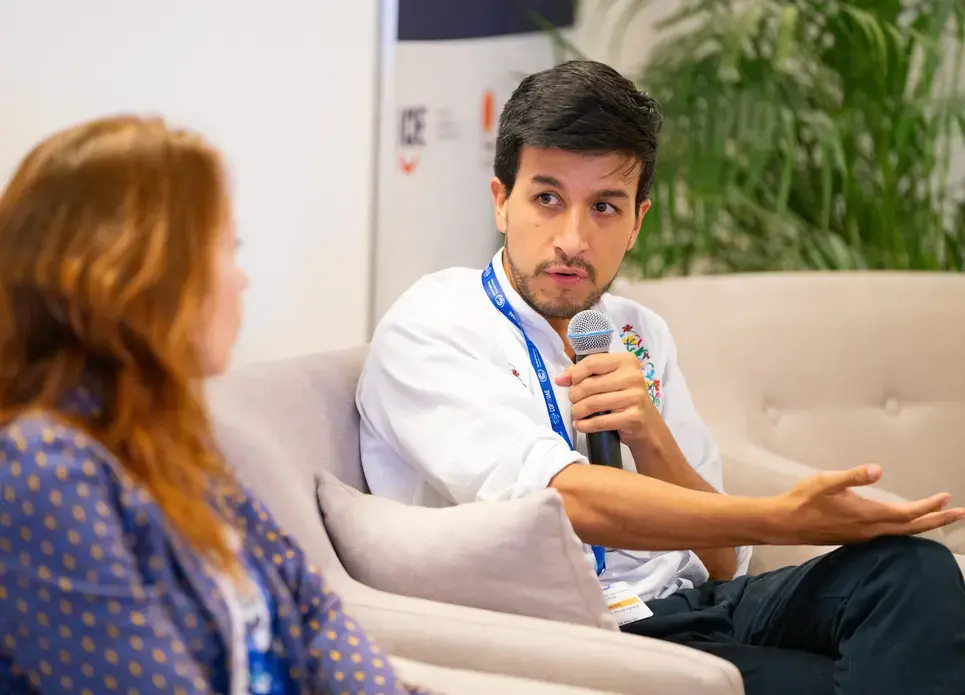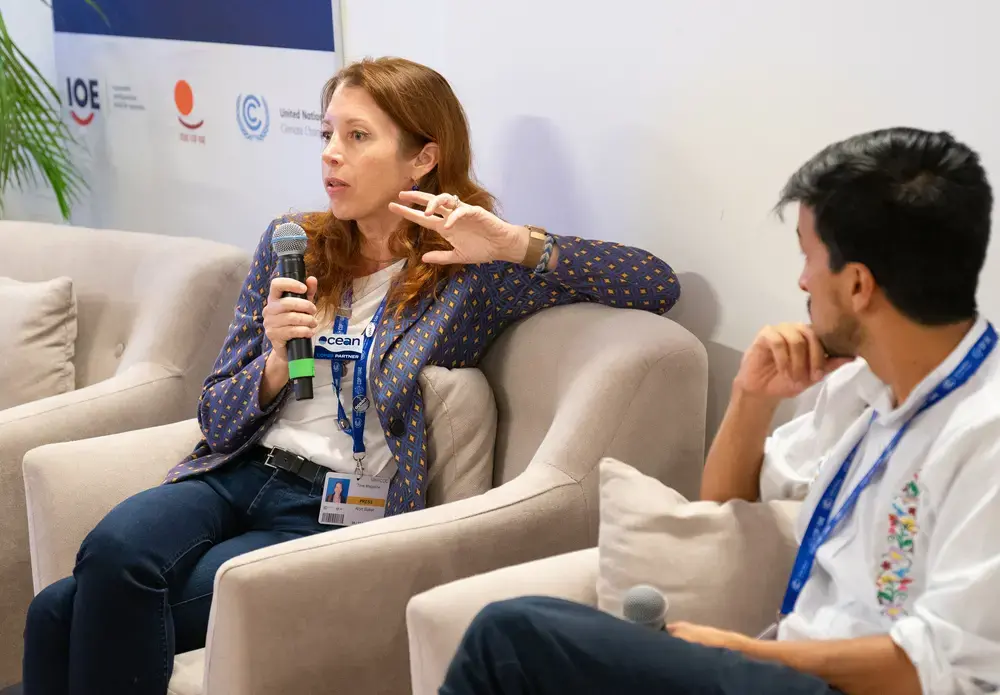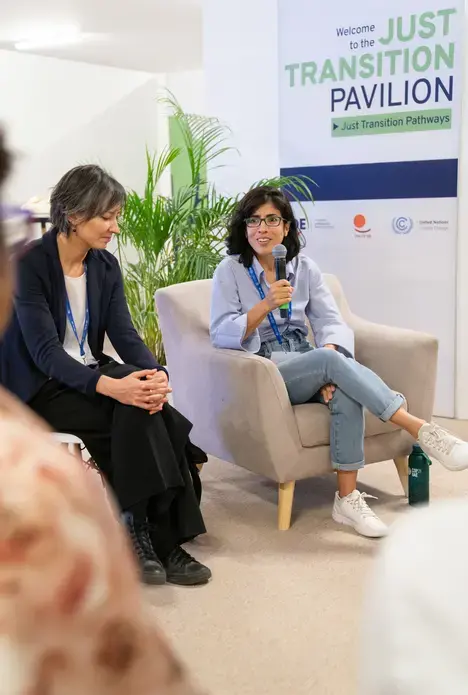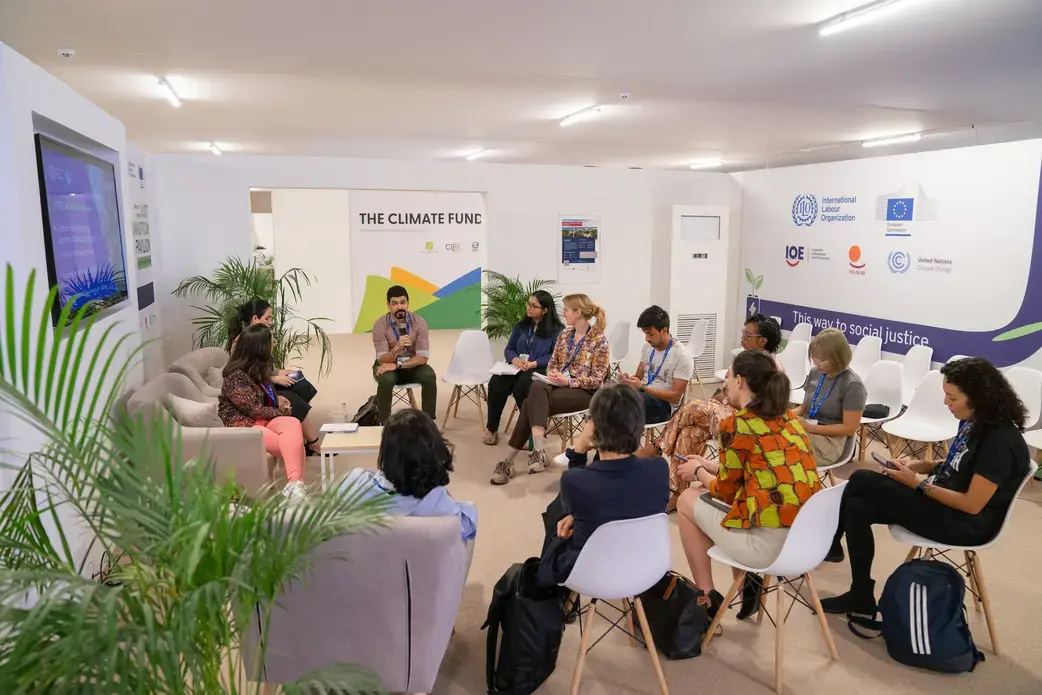Pulitzer Center Update December 14, 2023
Climate Narratives: The Pulitzer Center’s Participation at COP28
Making history, more than 80,000 people around the world participated in the 28th United Nations Climate Change Conference (COP28) in Dubai. The gathering aimed to deliberate the challenges of climate change, striving to forge consensus among nations to uphold the 1.5-degree limit on global warming, a cornerstone target outlined in the 2015 Paris Agreement.
On December 13, 2023, the final agreement reached emphasized the need for an "energy transition" to reduce the use of fossil fuels. Despite not mentioning the elimination of fossil fuels, the final text was considered a reasonable result.
Since the first international conference to discuss global warming decades ago, the climate and environmental discussion has gone through a transformation. We are witnessing the growth of two paradoxical trends: On one hand, climate change is emerging as a human rights crisis; on the other, there is climate reductionism, where the climate discussion is acknowledged, but the people suffering its consequences are ignored.
The Pulitzer Center brought to the climate conference different examples of breakthrough climate journalism and engagement initiatives that are key in better understanding the complexity of this paradox, exposing the responsible, and giving names to those at the front of this crisis so they can be held accountable.

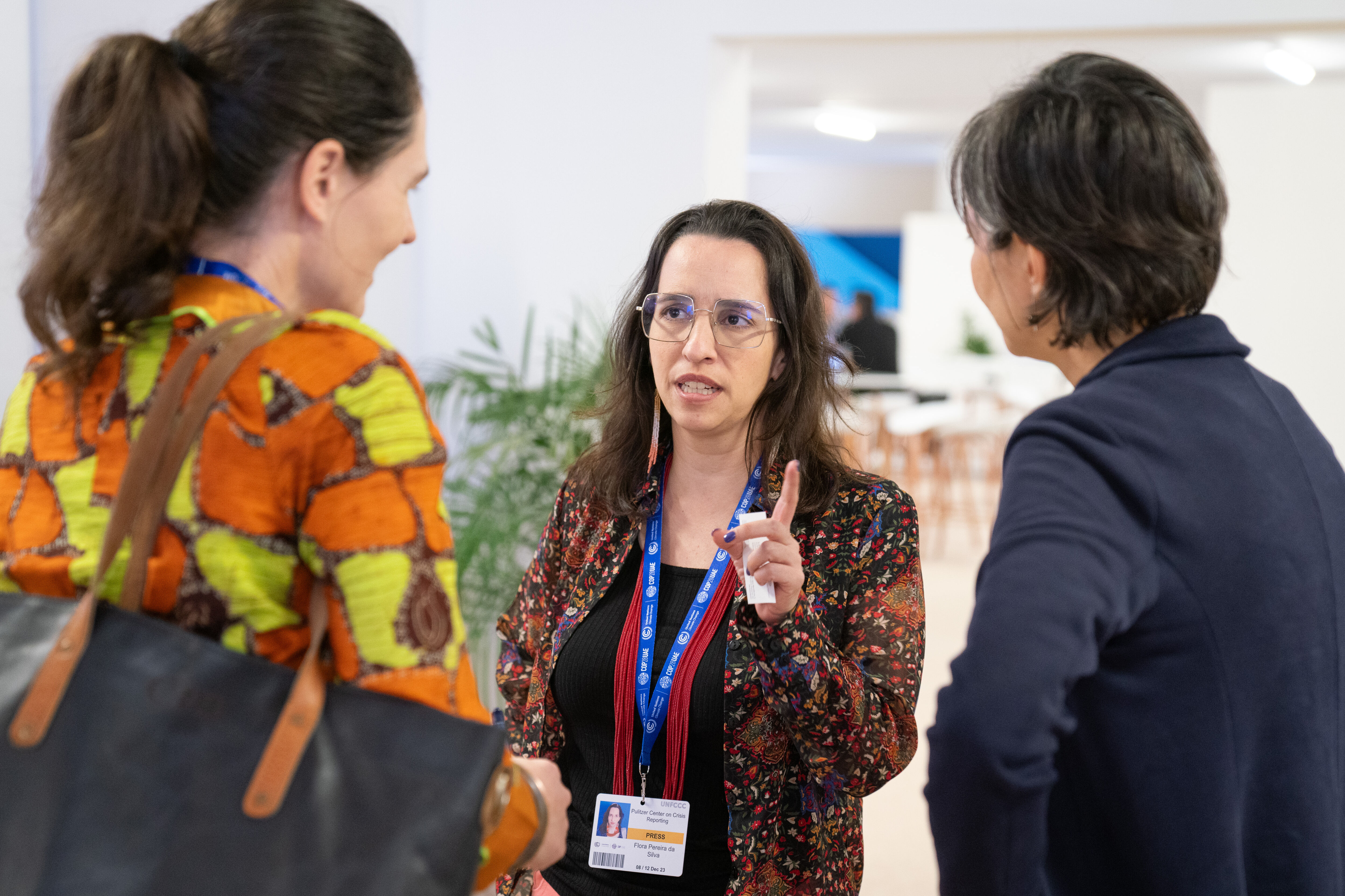
During the Pulitzer Center’s COP28 side events, we remembered that the climate crisis is also a crisis of narrative. Journalism and engagement can help society better decode different climate narratives and learn how to differentiate them, in particular those that claim to act for the planet and its people, but don’t lead to transformative policies or real accountability.
With six events in partnership with our journalist grantees, we had the chance to engage audiences across a diverse range of topics and formats, including a documentary night and creative writing workshop exploring the intersections of climate change and labor, and panels on ocean storytelling and youth-driven climate awareness. Our participation in the Central Africa and Colombia pavilions focused on the transformative role of journalism and communication in turning urgent forest issues into global climate actions, uniting perspectives across the world’s major rainforest regions.
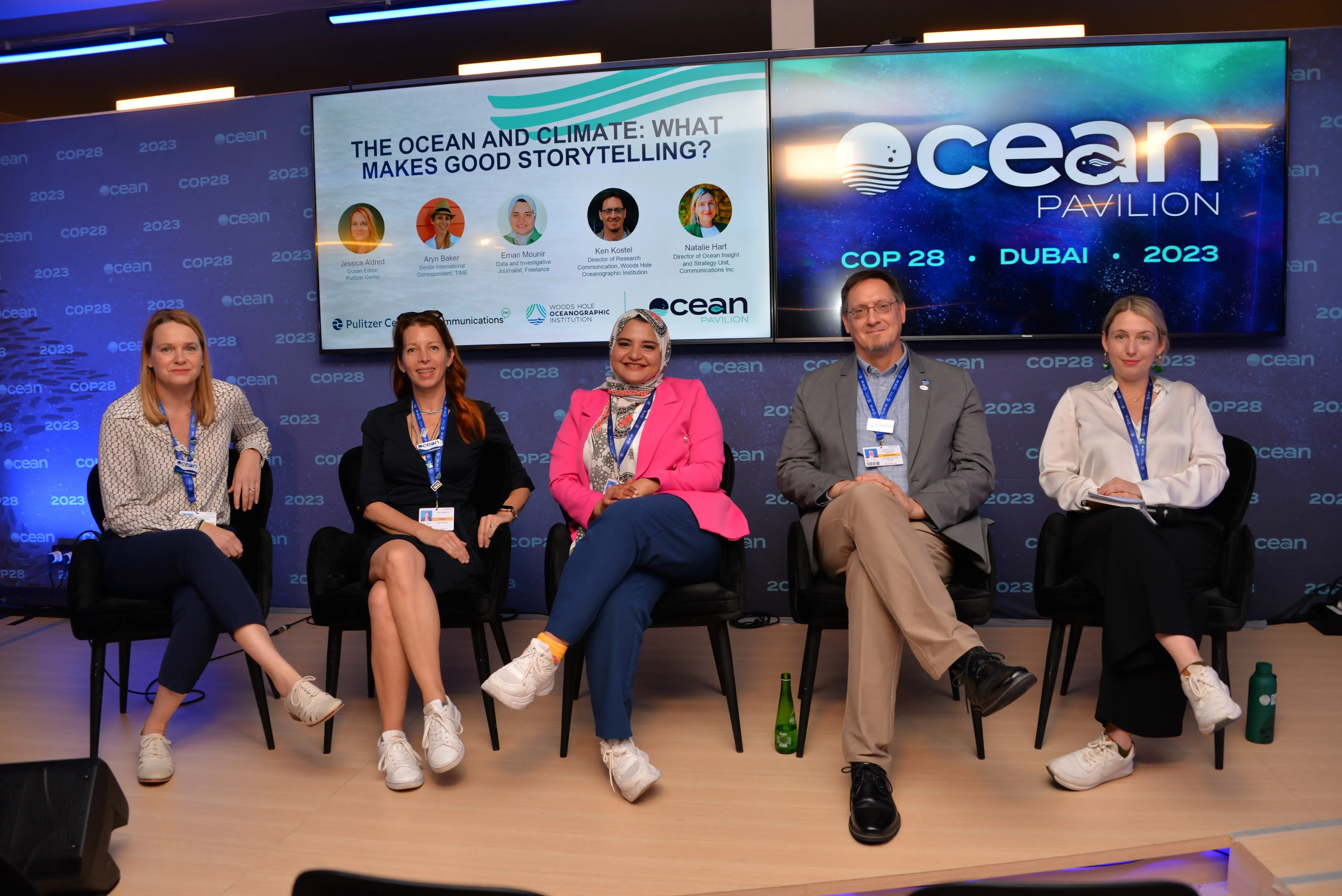
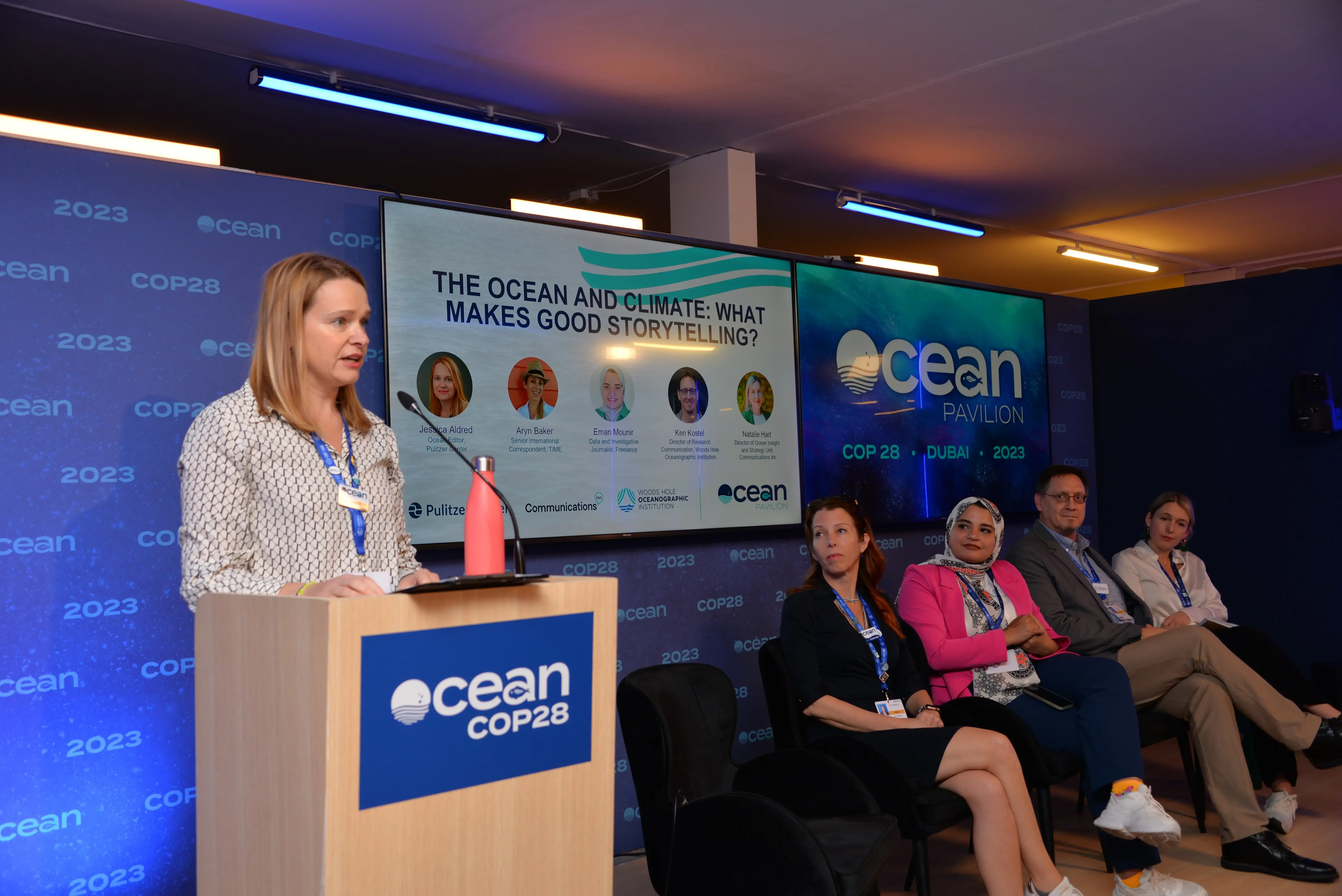
During opening remarks in the session "Forests in Dialogue," hosted in the Colombia Pavilion at COP28, Norwegian Minister of Climate and Environment Andreas Bjelland Eriksen highlighted the impact of the Pulitzer Center, including in the COP context: “Since 2018 the Pulitzer Center has, steadily and gradually built a strong network of media institutions and journalists from across the globe focused on rainforest journalism. Together, you have produced nearly 2,000 stories in more than 500 outlets in more than 50 countries. Your impact can hardly be overestimated. I am certain that the breakthrough for tropical forests at COP26 in Glasgow was, at least in part, due to this effort.”
Eriksen continued: “I feel reassured that the Pulitzer model of cross-country and cross-continent collaboration contributes to mitigating the risk of those on the front line. We need your journalistic eyes and ears to investigate and expose. Go tell your stories and make the public sphere a safer place. When the fourth estate is awake, the rest of us can sleep more tight.”
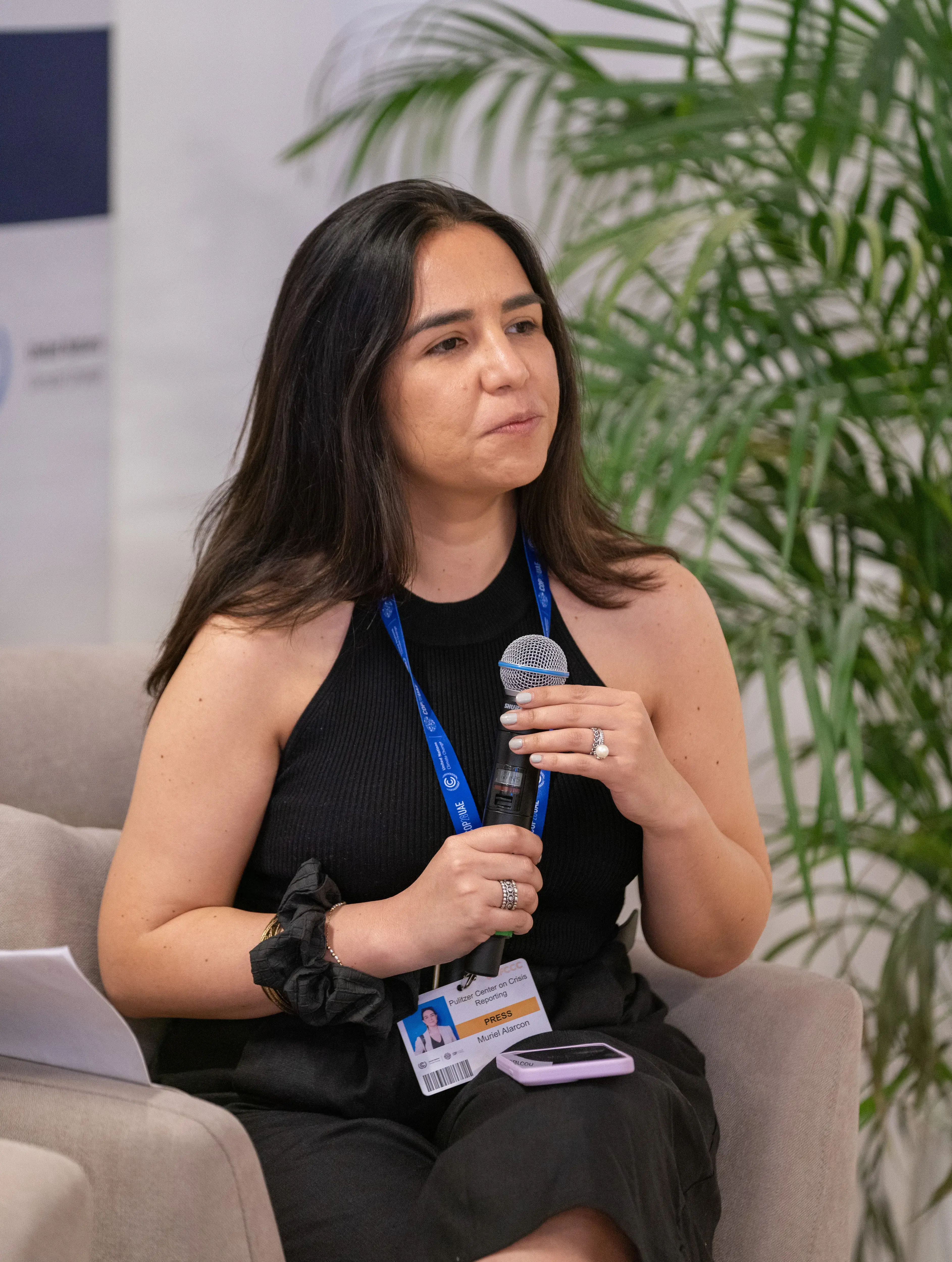
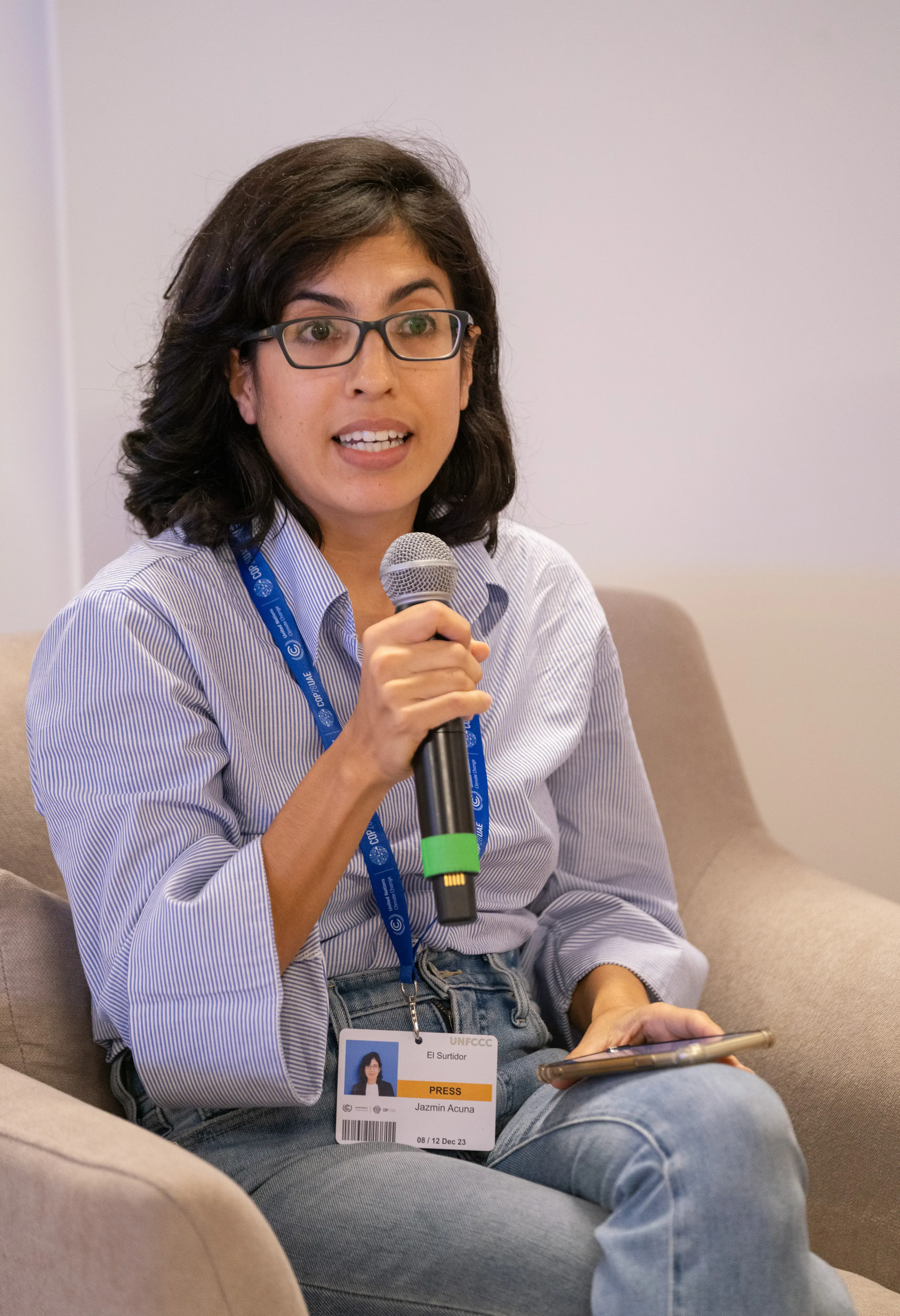
With climate and environmental journalism and narratives that center communities and are closer to the voices and audiences that have been silenced for centuries, we aspire to continuously work, learn, and collaborate with media outlets, civil society organizations, and academic institutions to reimagine the climate crisis.
Our presence at COP highlights our commitment to support journalism, education, and engagement as powerful tools in the emergencies and challenges of the hotter world ahead of us.
